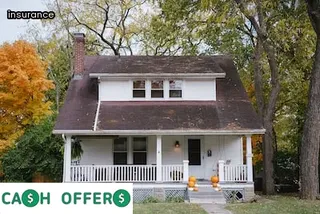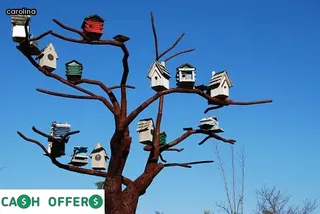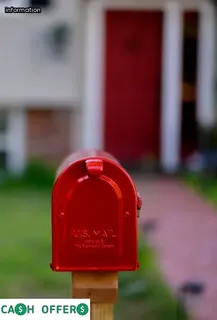Understanding North Carolina abandoned property law is essential for real estate owners who wish to claim abandoned property. North Carolina law requires that a person claiming abandoned property must have a legal claim to the land in question, such as when the owner has died or otherwise ceased to occupy the property.
It also states that a potential claimant must provide proof of their ownership, such as deeds and other documents, and they may be required to get court approval before taking possession of the land. In some cases, an individual may need to pay any back taxes or fees associated with the property prior to being able to take ownership.
Other considerations include knowing what types of properties are eligible for abandonment and how long someone has been away from the property before it can be considered abandoned in North Carolina. Additionally, it's important for potential claimants to understand that there may be multiple people vying for an abandoned piece of real estate at once and they should know what actions they will need to take in order to secure their rights as the rightful owner.

In North Carolina, adverse possession rights allow any individual to claim ownership of a piece of property if certain conditions are met. These conditions include the continuous use and occupancy of the property for at least 20 years and with the intention to possess it permanently.
To claim abandoned property in North Carolina, an individual must demonstrate that the property has been in their exclusive possession without interruption or objection from its true owner. The law also requires that such possession be “open, notorious, hostile and exclusive”; this means that it must be visible to the public and cannot be shared with anyone else.
Additionally, claimants must pay any applicable taxes or other charges related to the property during their period of occupancy. Upon meeting these requirements, individuals can obtain title to an abandoned or otherwise unclaimed real estate parcel in North Carolina by filing a Petition for Adverse Possession in court.
In North Carolina, both landlords and tenants have certain obligations. Landlords are responsible for providing a safe and habitable rental property to their tenants, meaning they must make necessary repairs, maintain appliances and common areas, and ensure that the rental unit is up to code.
Tenants must abide by the terms of their lease agreement, pay rent on time, keep the unit clean and in good condition, follow all community rules and regulations, and notify the landlord of any maintenance issues or potential hazards. Additionally, both parties should be aware of any local ordinances or laws regarding security deposits, rent increases or decreases, termination of tenancy agreements, abandonment of property by either party, and tenant rights during eviction proceedings.
Understanding these laws will help make sure that both landlords and tenants are meeting their legal obligations when it comes to claiming abandoned property in North Carolina.

In North Carolina, laws around unclaimed property are outlined in Chapter 116B of the North Carolina General Statutes. This chapter outlines the rules and regulations for how unclaimed property is to be managed, including who is responsible for its management and who may claim ownership of it.
According to the law, any property that has been abandoned, neglected or otherwise not claimed by its rightful owner for a period of at least three years is deemed to be unclaimed. The State Treasurer’s Office manages all unclaimed property in the state, and if a person believes they may have legal claim to such property, they must contact the office directly.
All claims are subject to review, and proof of ownership may be required. If a claim is approved, the claimant will receive their money or other assets from the treasurer's office.
It’s important to note that these laws apply only to real estate owners within the state; no one outside of North Carolina can lay claim to abandoned property within its borders.
In North Carolina, the state's Department of Administration oversees the disposal of abandoned and surplus property. All owners of real estate must familiarize themselves with the regulations set forth by this department.
To claim abandoned property in North Carolina, owners must meet certain requirements, such as notifying all potential claimants for the property and providing proof that they have paid all due taxes. Furthermore, all claims must be submitted to the Department of Administration, who will then determine if the property is indeed abandoned and if it can be claimed by an owner.
The Department also holds regular auctions for surplus property and items that are no longer needed by state or local governments. Potential buyers must register in advance with the auction seller before they can bid on any items.
Ultimately, understanding and following these regulations is essential when claiming abandoned property or bidding on surplus items in North Carolina.

Finding abandoned property in North Carolina can be a tricky task, but with the right strategies it is possible to locate and claim such real estate. Property owners should start by researching local records, as they may have information on vacant lots or buildings that have gone unclaimed for a certain period of time.
Additionally, it’s important to review state laws regarding claiming abandoned properties, as in some cases a longer wait period is required than in others. Property owners can also refer to their county tax assessor's office, as they often keep up-to-date records on the status of all local real estate.
Finally, those looking to find abandoned property should take into consideration any private or public organizations that may have access to relevant information and resources related to such properties. With the right research and strategy, North Carolina property owners can successfully locate and claim abandoned real estate.
When it comes to reclaiming abandoned property in North Carolina, a local attorney can be an invaluable resource. Having the advice of an experienced real estate attorney can help owners navigate the laws and regulations governing abandoned property in the state.
Knowing which laws apply to a particular situation, as well as understanding all of the criteria for claiming abandoned property, are key steps in the process. An attorney can also provide insight into how best to handle multiple claims, or any disputes that may arise from them.
It is important to note that attorneys specializing in real estate may charge extra fees depending on their experience and expertise. Doing research ahead of time to find the most qualified lawyer with reasonable fees is often worth the effort when it comes to reclaiming abandoned property in North Carolina.

Adverse possession is a legal concept that allows a person to gain title to real estate through extended, open and exclusive possession. In North Carolina, the adverse possessor must hold the property for at least 20 years before they can claim it as their own.
In order to be eligible for adverse possession in North Carolina, an individual must meet certain criteria. They must demonstrate actual, visible occupation of the land in question and intent to possess it exclusively; they must also pay taxes on the property and maintain it over the course of 20 years or more.
Furthermore, they cannot have legally obtained permission from the previous owner or any other entity that has a legitimate claim on the property; they must instead demonstrate that their occupation of the land is without authorization from anyone else with a valid interest in it. Adverse possession laws vary from state to state but understanding this concept is essential for any real estate owners looking to claim abandoned property in North Carolina.
Claiming abandoned real estate in North Carolina is often guided by the concept of adverse possession rights. Adverse possession rights allow a person to acquire title to another person’s property without compensation when certain requirements are met.
This concept was created to protect individuals who possess and maintain a piece of real estate for an extended period of time, but it can also be used as a way for people to take advantage of properties that are not being maintained or have been left vacant. It is important for real estate owners to understand the justification behind this law so they know the specific criteria they must meet in order to make a legitimate claim.
Furthermore, understanding these laws can help owners prevent others from mistakenly or maliciously claiming their property. As such, knowing how and why adverse possession rights exist is vital for any real estate owner in North Carolina.

Claiming abandoned property in North Carolina is possible through adverse possession laws. To be eligible for these claims, a claimant must demonstrate that they have been in continuous and exclusive possession of the property for a period of twenty years or more.
It is important to note that the claimant must pay any applicable taxes and comply with other requirements set forth by law. In addition, it is critical to understand that occupancy alone does not constitute adverse possession; other criteria such as open and notorious use of the property must also be met.
Furthermore, any claim made through adverse possession must be initiated within the time frame established by law; otherwise, the claim will become time-barred. Lastly, claimants should keep in mind that there are certain exceptions where one cannot make an adverse possession claim under North Carolina law.
Before pursuing a claim, it is essential to consult with an attorney or real estate expert to ensure all relevant requirements are met and all potential risks are considered.
Claiming abandoned property in North Carolina is a complex process, but it can be done with the proper knowledge and resources. Real estate owners must acquire a deed to an abandoned property before they can take legal control of the land.
The first step is to contact the County Clerk’s office to find out if there are any properties that have already been classified as abandoned or if there are any pending applications for claiming such properties. Once the owner has identified a potential property, they will need to verify the legal description and address of the property in question.
Then, the owner must file a petition in court that outlines their interest in the abandoned property and their intentions for taking possession of it. After filing this petition, they will need to wait for approval from a judge, which may take several weeks or months depending on how quickly the courts process these claims.
Once approved, the owner will then receive a deed from the court transferring ownership of the abandoned property over to them. It is important for real estate owners to understand all of these steps before attempting to claim an abandoned property in North Carolina so that they can ensure success in doing so.

Networking is a great way to find out about unclaimed assets in North Carolina. It can be beneficial to talk to other real estate owners and professionals who may have knowledge of abandoned properties.
Connecting with local government agencies, such as the county sheriff's office or the tax assessor's office, can also provide valuable information. Additionally, it may be helpful to research online resources related to state-specific laws regarding abandoned property.
By engaging with people in your network, you may be able to learn more about how to effectively locate and claim abandoned property in North Carolina. Networking is a powerful tool that can yield many rewards when it comes to claiming unclaimed assets in the state.
When searching for unclaimed money and assets in North Carolina, there are a few strategies to consider. Begin by checking with the North Carolina Department of the Treasury Unclaimed Property Division to see if funds or assets have been reported as abandoned.
This can be done online at nctreasurer.com/up or by calling 919-508-1000.
Additionally, real estate owners should research state records to determine if any property has been forfeited or abandoned. Contact local county officials to inquire about unclaimed money and assets that may have been left behind by previous tenants or other real estate owners in their jurisdiction.
Finally, investigate national databases such as missingmoney.com or unclaimed.
org for any potential funds owed to the owner from other states or federal agencies. With some diligent effort and a little luck, real estate owners can locate and claim forgotten money and assets in North Carolina.

Researching tax records is essential to finding unclaimed assets in North Carolina. Knowing the laws and regulations governing abandoned property can help real estate owners find, identify and claim these assets.
To begin your search, review any applicable state statutes. These will provide basic guidance on how to locate and reclaim abandoned properties.
Additionally, review county records for any references to abandoned property in the area. Tax information can be found through various sources including local assessors’ offices and public records databases.
Be sure to check all available resources to ensure you have a complete understanding of the laws and regulations surrounding claiming abandoned property in North Carolina. In addition, contact local government officials or attorneys who specialize in this area of law for further assistance if needed.
With careful research and attention to detail, real estate owners can successfully use tax records to locate and claim unclaimed assets in North Carolina.
Navigating the North Carolina state government website can be daunting for real estate owners trying to claim abandoned property. Luckily, the utility menu on the homepage offers a wealth of resources for those interested in claiming abandoned property.
From ‘Unclaimed Property’ and ‘Abandoned Property’ links that provide information on how to claim abandoned property to a searchable database of unclaimed funds, the utility menu has it all. Real estate owners can also find out if they have any unclaimed assets held by the state and sign-up for e-mail notifications when new unclaimed property is available.
With so many user-friendly tools at their disposal, claiming abandoned property in North Carolina has never been easier.

Claiming abandoned property in North Carolina can be a complex process, and it is important for real estate owners to seek professional assistance when retrieving lost assets. Obtaining the appropriate documentation and navigating legal regulations can be difficult without expertise.
Professional help can ensure that all necessary steps are taken to recover assets quickly and accurately. Real estate owners must first determine the right way to access their property, which may involve filing certain forms or obtaining permits.
Furthermore, understanding the nuances of local laws is essential for avoiding costly mistakes. Acquiring counsel can make the process simpler and more efficient, as experienced attorneys will have a thorough knowledge of relevant rules and regulations.
Consulting legal professionals also allows real estate owners to focus on other aspects of their business while their case is handled in an expert manner.
Claiming abandoned property in North Carolina can be a complex process, and understanding government regulations on state-owned surplus items is an essential step to ensure a successful real estate ownership claim. Knowing what types of properties are subject to state control and which ones are eligible for public access is important when making a claim.
Depending on the type of property, different rules may apply, and understanding the legal requirements will help ensure that the claim process is carried out according to all applicable regulations. Additionally, potential claimants should be aware of any taxes or fees that are associated with claiming excess items from the state.
It’s also important to consider any additional paperwork that must be completed when filing a claim. By taking into account all relevant government regulations when making a claim for abandoned property in North Carolina, real estate owners can guarantee their success.

Claiming abandoned property can be a great way to add value to your real estate portfolio, but it is important to make sure you are taking the necessary steps to protect yourself from fraudulent claims. The first step is to make sure that you are following all of the guidelines set forth by the state of North Carolina.
Doing your due diligence and researching any potential claimants is key in ensuring that you don’t get taken advantage of. Additionally, getting legal advice from a qualified attorney can help protect you from being scammed out of money or property.
Be sure to also document any and all interactions with potential claimants as evidence, should a dispute arise. Finally, if something doesn’t feel right, don’t hesitate to back away from the deal and seek professional help before signing anything or making any commitments.
Taking these precautions will put you in a much better position when claiming abandoned properties in North Carolina.
Navigating the legal issues surrounding unclaimed assets in North Carolina can be a complex and intimidating process, but with the right guidance real estate owners can make sure they are in compliance with state laws. Before beginning the process of claiming abandoned property, it is important to understand the different types of unclaimed assets that may be available in North Carolina, such as financial accounts, tax refunds, wages, and insurance benefits.
It is also essential to research all applicable laws and regulations related to abandoned property in order to ensure that claims are made correctly and appropriately. Furthermore, understanding any applicable deadlines or statutes of limitations is paramount for successful claims.
Real estate owners should also familiarize themselves with the different processes for filing claims on unclaimed assets such as contacting relevant agencies or submitting paperwork through the proper channels. Finally, staying up-to-date on any changes or updates to existing laws concerning unclaimed assets will help real estate owners remain compliant when dealing with these issues.
Yes, you can claim an abandoned house in North Carolina. If you are a real estate owner, the process for claiming abandoned property in the state is relatively straightforward.
In this guide, we will walk you through the steps necessary to successfully secure ownership of an abandoned property in North Carolina. First, it is important to understand what qualifies as an abandoned property.
According to NC law, an abandoned property is defined as any real estate that has been without occupancy for at least 90 days or more and/or has been subject to taxes that remain unpaid for at least three years. Once you have identified an eligible property, the next step is to conduct due diligence on the property.
This includes researching whether anyone else has a legal interest in the property or if there are any liens on it that must be addressed before claiming ownership. You should also look into zoning laws which may impact your ability to use the land as intended.
After completing your research and found that no one else has a legal interest in the property and all applicable zoning laws meet your requirements, you can then take action by filing a deed transfer form with your local county register of deeds office and submitting payment for any applicable fees associated with the transfer process. Once these steps have been completed and all payments made, you are now officially recognized as owner of the abandoned real estate!.

The abandoned property law in North Carolina is designed to protect the rights of real estate owners in the state. Under the law, a person who has been in possession of an abandoned property for at least seven years may be eligible to make a claim for title to that property.
In order to do this, they must first file a petition with their local county court and provide evidence that they have had possession of the property for more than seven years. The court will then review the evidence and decide if the claimant has legal ownership of the property.
If the claim is approved, the owner will receive a deed from the court granting them title to the property. Additionally, any liens or mortgages attached to the property are extinguished when ownership is transferred.
This process helps ensure that all parties with valid claims or interests in an abandoned property are properly compensated for their efforts and investments.
Claiming abandoned property in North Carolina may seem daunting, but it doesn't have to be. If you are a real estate owner looking to claim unclaimed property in North Carolina, there are a few important steps you need to take.
Firstly, you must identify the property as abandoned and determine who the rightful owner is. Once this has been done, you must contact the county government office where the property is located and follow their procedures for claiming it.
You will likely need to submit a written request with supporting documentation outlining your claim. Keep in mind that some counties require that you provide proof of ownership such as tax records or deeds before they will release the property.
Additionally, depending on the type of property being claimed, additional paperwork or fees may be required. After all necessary documents and fees have been submitted, the county will review your claim and decide whether to award you ownership of the abandoned property.
Taking these steps is essential if you wish to successfully claim abandoned property in North Carolina.
In North Carolina, you can find unclaimed land through a variety of methods. The Department of Administration offers an online search tool that allows real estate owners to search for unclaimed property located in the state.
Additionally, counties may also have local resources available that provide information on unclaimed land in their jurisdiction. Real estate owners should contact their county’s tax office or other local government agency to determine what services are available and how they can access them.
Furthermore, many states offer websites and publications that provide tips on how to search for unclaimed land. In addition, potential buyers should research any county-specific regulations regarding claiming abandoned property before making any decisions about purchasing it.
Finally, a real estate attorney can also offer advice on the legal aspects of claiming abandoned property in North Carolina.
A: If you believe you are the rightful owner of abandoned property in North Carolina, you may be able to claim it by filing a payee claim with the Bondholder. To do this, you will need to provide proof that you are the rightful owner and purchase a bond from an insurance company or surety agency. The amount of the bond must equal or exceed twice the value of the property rights being claimed.
A: The process for claiming abandoned property in North Carolina as an insured, policyholder, or insurer of an insurance company involves filing a claim with the North Carolina Department of Insurance. The claim must include proof of ownership and all relevant documents related to the insurance policy. After the claim is approved by the department, the claimant will be granted access to the abandoned property.

A: In North Carolina, you must file a claim with the Unclaimed Property Division of the NC Department of State Treasurer. You may be required to provide proof of ownership or other documents to establish your right to the property.
A: North Carolina law provides a process for real estate owners to claim abandoned property. The first step is to file a claim with the county clerk of court in the county where the property is located. The claim must include an affidavit, proof of ownership, and any other documents required by local law. After filing the claim, the owner must publish notice of their intent to claim the property in a local newspaper. If no objections are filed within 60 days, then title to the property will transfer to the claimant upon final judgment granted by a court.
A: In order to claim abandoned property in North Carolina, you must provide proof of the lease or rental agreement and file a claim with the United States District Court for the Eastern District of North Carolina. Once your claim is approved, you will be entitled to any applicable funds or assets that have been left behind by the previous tenant.

A: To claim ownership interest in abandoned personal property in North Carolina, you must establish a trust fund and provide evidence of your legal right to the property. The trust fund must include information on the type of property, its location, and ownership rights.
A: If you are the policyholder, insured, or insurer of an insurance company in North Carolina, you can file a claim for an abandoned property Cash Dividend Credit by submitting an unclaimed property report to the North Carolina State Treasurer's Office. The report must include valid proof of ownership and the amount of money owed to you from the Cash Dividend Credit.
A: The process for claiming ownership rights to abandoned personal property in North Carolina through a binding contractual agreement is to provide evidence of the applicable contractual agreement, such as a lease or rental agreement, to the relevant county clerk. If the property is held in a safe deposit box, you must also provide proof that you are the insured, policyholder, or insurer of an insurance company.

A: To claim ownership interest in abandoned property in North Carolina as a beneficiary, bank, or other entity with liability, you must first file a Claim for Abandoned Property with the North Carolina Department of State Treasurer. The claim will then be reviewed by the Abandoned Property Unit and if valid, you will receive a Notice of Award and be able to take possession of the property.
A: You can stay informed by subscribing to email newsletters from the North Carolina Department of State Treasurer, as well as checking for income tax refund information relating to abandoned property. Additionally, you may contact them directly via email with any queries or issues.
A: In order to claim abandoned property in North Carolina, you must meet certain legal requirements and be aware of potential tax implications. You must file a claim within a certain deadline, which is determined by the type of property you are claiming, and provide documentation such as proof of ownership or other evidence to support your claim. Additionally, depending on the type of property, you may need to pay any outstanding taxes due before being able to proceed with your claim.

A: To claim ownership interest in abandoned property in North Carolina you must provide proof of your status as a beneficiary, bank, or other liable party. This can be done by providing documentation such as a contract or legal document that confirms your status and provides evidence that you are the rightful owner. Additionally, you may need to contact the county clerk's office where the property is located to file an official notice of claim with the appropriate court. Refer to A Guide for Real Estate Owners for more detailed information on claiming abandoned property in North Carolina.
A: Under the Tax Laws of the United States, individuals claiming an ownership interest in abandoned property in North Carolina must provide proof of their identity and ownership rights. This includes providing documentation such as a valid driver's license or passport, retirement account statements, and any binding contractual agreements that may exist. Additionally, claimants must comply with North Carolina's Privacy Policy to ensure their personal information remains confidential.
A: The Defined Benefit Pension, Laws of the United States and Income Tax Laws all have an impact on the process of claiming abandoned property in North Carolina. Depending on your individual circumstances, you may need to consult with legal or tax professionals to ensure you comply with applicable laws and regulations when claiming abandoned property.
A: If you have a disability and are interested in claiming ownership of abandoned property in North Carolina, you should contact your local Customer Service office for assistance. They will be able to provide information on the necessary steps to take to claim ownership of any furniture or other items that may have been left behind.